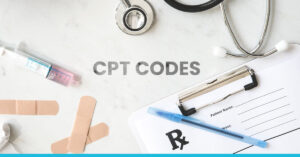These regulations and standards make healthcare providers and organizations create effective processes, procedures, and policies that enforce acceptable conduct, training for the staff, and constant monitoring to ensure all regulations and requirements are being met. Regulatory compliance for healthcare oversees various aspects such as billing, managed care contracts, patient care, reimbursement, OSHA, HIPAA security and privacy, and Joint Commission on Accreditation of Healthcare Organizations.
This isn’t a new concept. The first regulatory standards for healthcare facilities (surgery) were introduced by the American College of Surgeons in 1918. Currently, healthcare providers and organizations have dedicated staff whose job is to ensure the practice is meeting regulatory compliance standards.
The purpose of these healthcare compliance standards is to improve the quality of service being imparted. Improvements in services are visible when decisions are made according to the prevalent clinical standards.
By remaining compliant with healthcare regulations, providers and organizations can avoid running into potential problems with government authorities. An effective compliance program in the healthcare organization can help detect potential problems before the authorities do. Such programs can also prevent financial penalties or the imposition of sanctions on the healthcare provider or organization. Avoiding liability for malpractice also becomes easier with effective healthcare compliance programs.
HHS OIG
The purpose of the Department of Health and Human Services (HHS) Office of Inspector General (OIG) is to guard federal healthcare programs against waster, abuse, and fraud. The OIC has come up with compliance guidelines for healthcare organizations that define the elements of an effective healthcare compliance strategy. The OIG states that every effective healthcare compliance strategy should address the seven following areas:
Maintaining and Improving Standards
The creation, dissemination, and implementation of specified standards of practice, policies, and procedures that explain the healthcare organization’s aim of maintaining and improving on the ethical and legal standards that apply to it.
Employing a Dedicated Compliance Officer
The organization must have a chief compliance officer and other required individuals that will be responsible for monitoring and execution of the compliance strategy. The organization must also have an individual that reports to the CEO and the governing body.
Trainings
Ensure employees are given effective training through education programs.
Clear Communication
The organization should have clear lines of communication that enable individuals to voice any concerns related to compliance without fear, along with the ability to lodge complaints anonymously
Compliant Resolution
There should an elaborate and effective process that reviews and responds to complaints. This includes the implementation of corrective measures such as disciplining employees when needed.
Self-Analysis
The organization must also have internal checks and balances and audits to assess compliance and address shortfalls.
Corrective Measures
There must be guidelines in place that assess and respond to correct issues that may arise.
The regulations that govern healthcare organizations and providers are ever-changing. With them, providers and organizations must also change their compliance programs. Interpreting and understanding the changes in federal and state laws is a challenge. Therefore, effective healthcare compliance must also evolve in the shape of continuous reviews and updates of the process, procedures, and policies of the organization. Additionally, healthcare providers and organizations must ensure new employee training complies with the new regulations.
Identification of all the regulations and laws applicable to a particular healthcare organization is primary. The organization must also be aware of the various federal and state agencies that enforce and oversee laws. For example, the HHS oversees Medicaid, Medicare, and other federal healthcare programs along with the HIPAA security and privacy rules. Many healthcare providers and organizations must also
adhere to the regulations highlighted by the FDA, and the DEA. Every one of these governmental bodies issues regulations that interpret the laws they are responsible for overseeing.
Due to the volume and complexity of this regulatory framework, most healthcare organizations and providers must rely upon specialists in healthcare compliance to develop, implement and update their compliance programs. A large healthcare organization can have hundreds of people working under its chief compliance officer.
Top Challenges of Healthcare Compliance
Because compliance with federal and state regulations is a complex task, it poses numerous challenges for healthcare providers and organizations. To be fully compliant with regulations (federal and state), providers must ensure the following:
- Providing ongoing, accurate, and relevant education and training for employees.
- Maintaining accreditation and compliance with the use of the cloud providers that are compliant with HIPAA regulations.
- Keeping pace with technological changes and relevant regulations.
- The effects of patient involvement via online portals providing access to records.
- Creating developing, and renewing policies without overlaps and conflicts.
- Conducting regular audits of privacy and security policies.
- Making relevant changes to patient privacy policies following the introduction of the General Data Protection Regulation (GDPR)
- Maintaining accountability
- Enforcing appropriate disciplinary actions in case of any violation of regulations
It can be difficult to handle these aspects of compliance without help from an individual or group with an understanding of the rules and regulations involved, which is why a chief compliance officer is essential for every healthcare organization.
Compliance Management
The sign of an effective healthcare compliance program is that it keeps pace with the changes occurring in government regulations, office operations, technology, and payer requirements. The healthcare organization must follow these laws and regulations that govern HIPAA Security and Privacy, Emergency Medical Treatment and Active Labor Act (EMTALA), the False Claims Act, Stark Law, Anti-kickback Statute, and OSHA standards.
Managing compliance is all about handling investigations which include self-disclosure protocols requirements laid out by Certificate of Compliance Agreements (CCAs) and Corporate Integrity Agreements (CIAs). This explains that healthcare organizations must remain up to date with the investigative tasks of Medicaid fraud control units, recovery audit contractors, and zone program integrity contracts. Healthcare providers and organizations are required to be aware of how to manage risk and audit areas susceptible to risk to identify physician services that require teaching physicians’ guidelines, evaluation and management, Advice Beneficiary Notices, incident-to services, date of services, and modifiers.
According to the AAPC, healthcare organizations and providers must take the following steps to ensure total compliance:
- Internal monitoring and auditing
- Implementation of practice and compliance standards
- The presence of a designated compliance officer
- Relevant education and training for employees
- Open and clear communication lines
- Implementation of disciplinary standards
Opportunities Arising for Healthcare Organizations & Providers
Over the next decade, effective compliance programs will hold greater importance for all healthcare businesses. These programs will be worth the investment not because they will be mandatory. Some opportunities that may arise for healthcare organizations and providers are:
- Healthcare businesses will be able to incorporate laws and regulations into their organization’s values and mission, instead of following mandatory guidelines. This will allow them to develop value-based compliance programs that will enable improved service delivery and become part of their culture.
- Healthcare organizations will be able to achieve service excellence by honestly evaluating their weaknesses. Healthcare businesses that accept this ability to self-analyze will have a greater degree of independence in their compliance programs. This freedom will offer a new viewpoint and foster candid discussions that are vital to making service improvements.
- Healthcare organizations and providers will be able to highlight risks with ease. This, in turn, will help them create comprehensive measurements, internal tracking protocols, reports, and audits that address changing trends.
- Compliance programs will take the form of a business team. With these programs, healthcare businesses will be able to identify the target, collect data, assess performance, link compensation to the completion of objects, and offer increase accountability. Healthcare businesses with such compliance programs will be able to trump those that have a reactive approach to compliance programs.
- Healthcare organizations with a proactive compliance program will be able to recruit and retain human resources with a focus on values. These proactive compliance programs will link the organization’s policies to its values.
- Healthcare organizations will be able to develop more collaborative compliance programs. The programs will be able to resolve issues across the organization through collaboration.
- There will be good compliance officers who will know when big changes will be needed and will dedicate the time and energy to move the culture. They will identify the need for change before receiving a subpoena from the government, and they will effectively engage other leaders in making that change.



No comment yet, add your voice below!